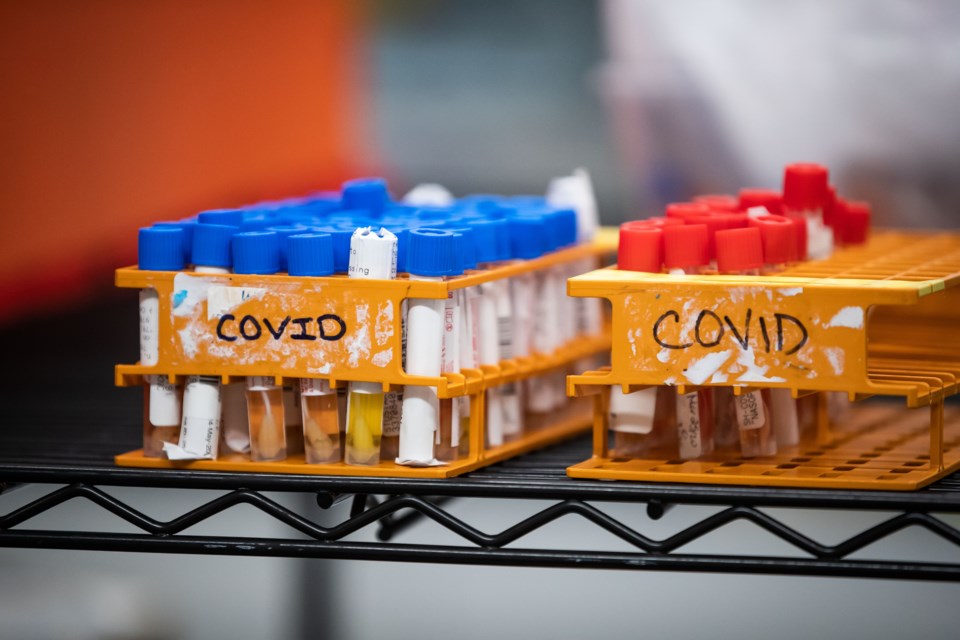Thousands of scientists around the world are working on problems raised by the COVID-19 pandemic. Here is a summary of some recent research from peer-reviewed academic journals and scientific agencies:
---
A study in the journal Nature has looked at when a person with lab-confirmed COVID-19 is most infectious. In examining 77 pairs of people, one of whom had been infected by the other, it found that the sick person had the highest viral load right about the time their symptoms began to appear. The paper estimates that 44 per cent of the study cases resulted from contact with an infected person before symptoms began. It concludes that infectiousness peaks on or just before people begin to feel sick, and suggests public health measures should be adjusted to account for probable substantial presymptomatic transmission.
---
Canadian research that suggested dogs could be a possible source of the novel coronavirus is getting a rough ride. The original paper, published in Molecular Biology and Evolution, said the novel coronavirus has far less of a certain type of genetic material than other viruses in the same family. It said dogs carry a virus that has a similar profile of that material, suggesting canines could be the original source of the virus causing COVID-19. Other scientists, however, have dismissed that as speculation. They point out that there is wide variation between viruses and that similarities between the novel coronavirus and the dog virus don't necessarily mean the two are linked.
---
A paper in the journal Science says the future of social distancing and other non-drug ways to slow the spread of COVID-19 depends on how long immunity lasts for people who have been infected. The paper says immunity to reinfection probably fades over time and wintertime outbreaks are likely to occur for years to come. It says those outbreaks will be just as capable of overloading health-care capacity as the current pandemic. The authors conclude that without a vaccine or other pharmaceutical developments, social distancing and other controls may be needed off and on through 2022, with the disease itself reappearing as late as 2025.
---
The journal Psychology, Health and Medicine has examined the mental-health impacts of COVID-19 in 7,236 respondents from China. It found 35 per cent suffered anxiety, 20 per cent showed depressive symptoms and 18 per cent had poor sleep during the outbreak in that country. People under 35 years old were most affected. Health-care workers had the highest rate of poor sleep, and that rate increased the more time they spent at work. The journal recommends continuous monitoring of such workers during outbreaks.
---
One Chinese study that has not been peer-reviewed says it has found little benefit to the use of hydroxychloroquine, an antimalarial drug that has been the centre of controversy. The study compared 75 adult COVID-19 patients who received standard treatment with 75 who received treatment along with hydroxychloroquine. It found no measurable differences in viral load between the two groups after 28 days — nor did it find differences at five points during that interval — suggesting hydroxychloroquine did not cure the infection. Some symptoms were alleviated, however, once researchers stopped giving other antiviral drugs to those taking hydroxychloroquine. The study found adverse side effects were three times higher for those who took hydroxychloroquine, the most common being diarrhea.
---
A paper to be published in the Journal of Infection has broken down how long different groups remained infectious with the novel coronavirus. Researchers found the median time between diagnosis and the last positive test for the virus was 26 days. There was no significant difference between men and women. Patients younger than 60 carried the virus for about 20 days and those who were older were infectious for 28 days.
---
This report by The Canadian Press was first published April 16, 2020
Bob Weber, The Canadian Press




